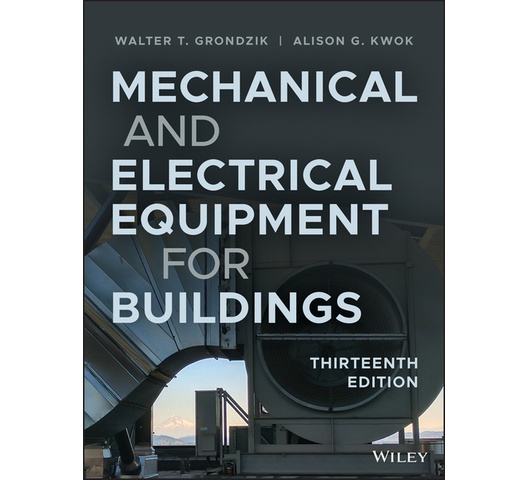
Mechanical and Electrical Equipment for Buildings
by Walter T. Grondzik, Alison G. Kwok
The definitive guide to the design of environmental control systems for buildings—now updated in its 13th Edition
Mechanical and Electrical Equipment for Buildings is the most widely used text on the design of environmental control systems for buildings—helping students of architecture, architectural engineering, and construction understand what they need to know about building systems and controlling a building's environment. With over 2,200 drawings and photographs, this 13th Edition covers basic theory, preliminary building design guidelines, and detailed design procedure for buildings of all sizes. It also provides information on the latest technologies, emerging design trends, and updated codes.
Presented in nine parts, Mechanical and Electrical Equipment for Buildings, Thirteenth Edition offers readers comprehensive coverage of: environmental resources; air quality; thermal, visual, and acoustic comfort; passive heating and cooling; water design and supply; daylighting and electric lighting; liquid and solid waste; and building noise control. This book also presents the latest information on fire protection, electrical systems; and elevator and escalator systems. This Thirteenth Edition features:
- Over 2,200 illustrations, with 200 new photographs and illustrations
- All-new coverage of high-performance building design
- Thoroughly revised references to codes and standards: ASHRAE, IES, USGBC (LEED), Living Building Challenge, WELL Building Standard, and more
- Updated offering of best-in-class ancillary materials for students and instructors available via the book’s companion website
- Architect Registration Examination® (ARE®) style study questions available in the instructor’s manual and student guide
Mechanical and Electrical Equipment for Buildings, has been the industry standard reference that comprehensively covers all aspects of building systems for over 80 years. This Thirteenth Edition has evolved to reflect the ever-growing complexities of building design, and has maintained its relevance by allowing for the conversation to include ”why” as well as “how to.”

Reviews
This product does not have any reviews yet.
Add your review
